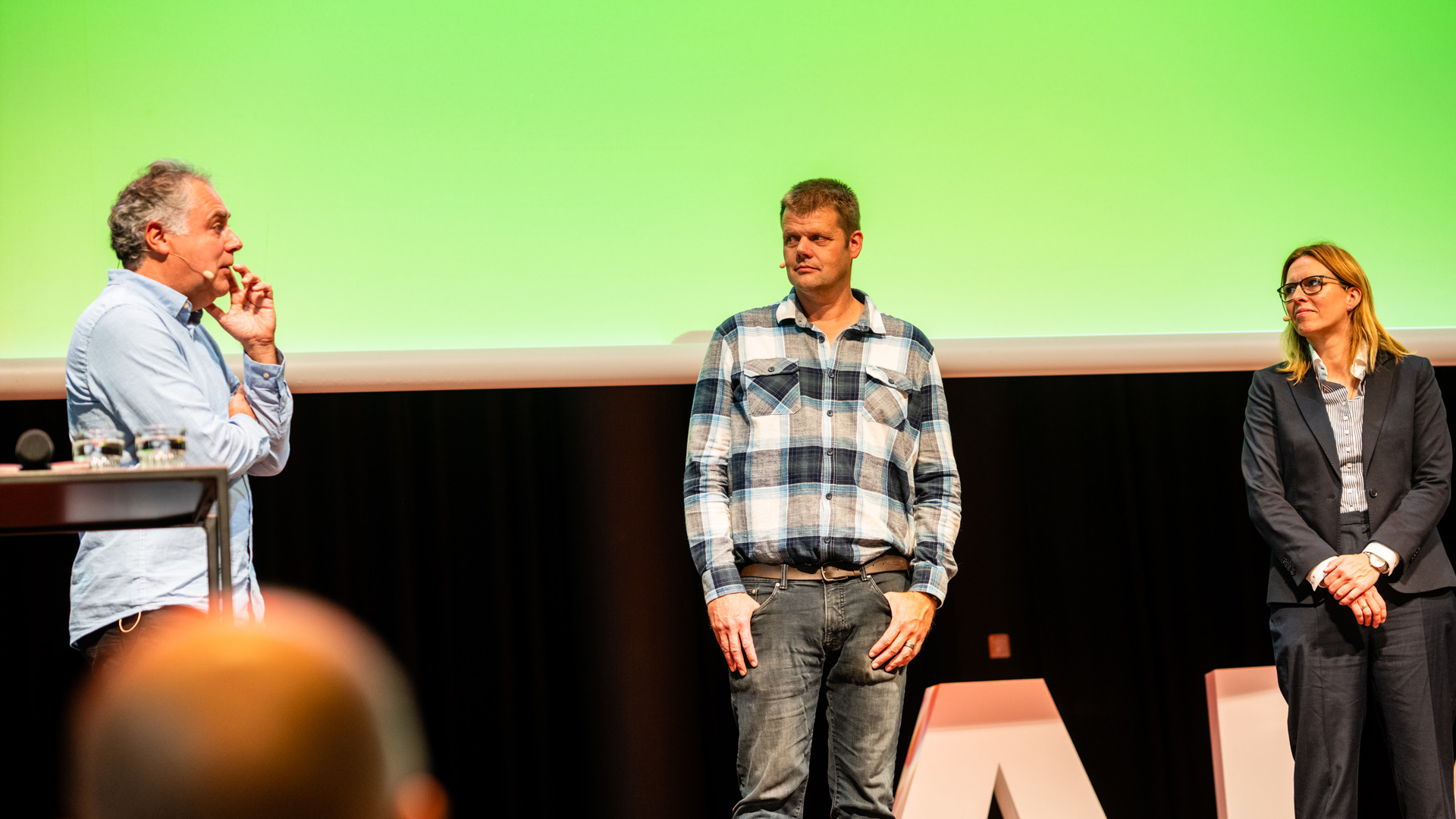
Looye Tomatoes
Annelies Looye is operational director of Looye Tomatoes. Together with her sisters Margriet (marketing and sales) and Jacqueline (management of the sister company in Spain), she took over Looye Kwekers from her parents in 2022, the company her grandfather started eighty years ago. Their vision is clear: "we believe in the power and beauty of the collaboration between humans and nature. We aspire to become smarter, better and more sustainable every day."
Looye's tomatoes grow on 33 hectares in their own greenhouses (Naaldwijk and Burgerveen) and 35 hectares at contract growers. The company supplies about fifteen million kilos of tomatoes annually. In doing so, the three sisters work on sustainability every day. Annelies: "The innovative and high-tech greenhouses produce five times per square meter more in comparison to traditional cultivation. Result? More land for nature and biodiversity."
Looye Tomatoes is on the road to 100% climate neutral by 2040. Annelies expects to achieve that result even sooner. "At the moment, ninety percent of our water use is recycled. Of course, our focus is one hundred percent. In addition, 65 percent of the energy is powered by solar. "We are in the middle of the energy transition. For our electricity/lighting, we switch completely to LED. In addition, we believe in the power of semi-closed greenhouses that save a lot of heat. And we use the CO2 as much as possible from industry. What we do in the Netherlands is high tech."
Van den Borne Potatoes
Jacob van den Borne (1981) is the third generation in the family farm. In 2006 he became the owner of Van den Borne Potatoes, an arable farm in the south of The Netherlands. With 550 hectares of potatoes, 50 hectares of sugar beet and 300 hectares of maize, the company is one of the leaders in the sector.
Ever since his studies in arable farming (2004), Jacob has been fully committed to precision agriculture: the use of technology and data to grow smarter, more sustainably and more efficiently. For example, he shows the conference participants in Rotterdam a picture from a diary of his grandfather. "In the late fifties, he wrote down every night after dinner what he had done that day. And why did he do it? To learn. That is why we have developed a program that we call the cycle of precising farming."
He has to laugh about it himself. "I wanted to be the most digital partner and we didn't have a connection." But don't worry. Van den Borne started with the internet himself. Just like he did with drones that he now uses for many things, including spraying the potatoes. "We were not allowed to fly, but that is allowed at an airport. So what did I do? Yes, I started my own airport."
The drones, satellite images and soil sensors now provide him and his team with continuous information. This allows the company to increase yields, save costs and minimise the use of fertilisers and crop protection. Jacob: "Every trip across the field is an opportunity to collect data and manage it better."
For Jacob, precision agriculture is more than technology: it is a way to combine farmer's wisdom and data. This allows farmers to make evidence-based choices, achieve higher yields and work within the limits of nature. Or as he puts it himself: "At the right time, in the right place, doing the right thing."
Kipster
Ruud Zanders is co-founder of Kipster. He grew up on a poultry farm and studied economics at Wageningen University. After years of running large-scale poultry farms himself, a personal crisis in 2007 led him to make a radical U-turn. Since then, he has focused entirely on sustainable, animal-friendly and small-scale livestock farming. "We are the only company in the world that gives human food scraps to the chickens. It is a shame to produce animal proteins with grain that can feed people."
Together with his partners, Ruud wants to prove that things can be done differently: producing eggs and meat with minimal impact on the environment. And with respect for animal welfare. He has now learned that "humans and animals are more alike than we think".
Ruud shows a video in Rotterdam, in which his daughter explains how Kipster works and how proud she is of her father. Ruud himself dreams of a world in which we eventually no longer need animals in our food at all. Until then, he believes that we have a joint responsibility: "keep as few animals as possible and treat them with as much respect as possible".
Finally, he has one free tip in store for those present: "From now on, only buy white eggs. These have a lower carbon footprint than brown ones." Why is that? "Because a white chicken eats less than a brown chicken. She needs the same amount of feed to produce an egg, but because of a lower body weight than a brown hen, less for her own maintenance."





